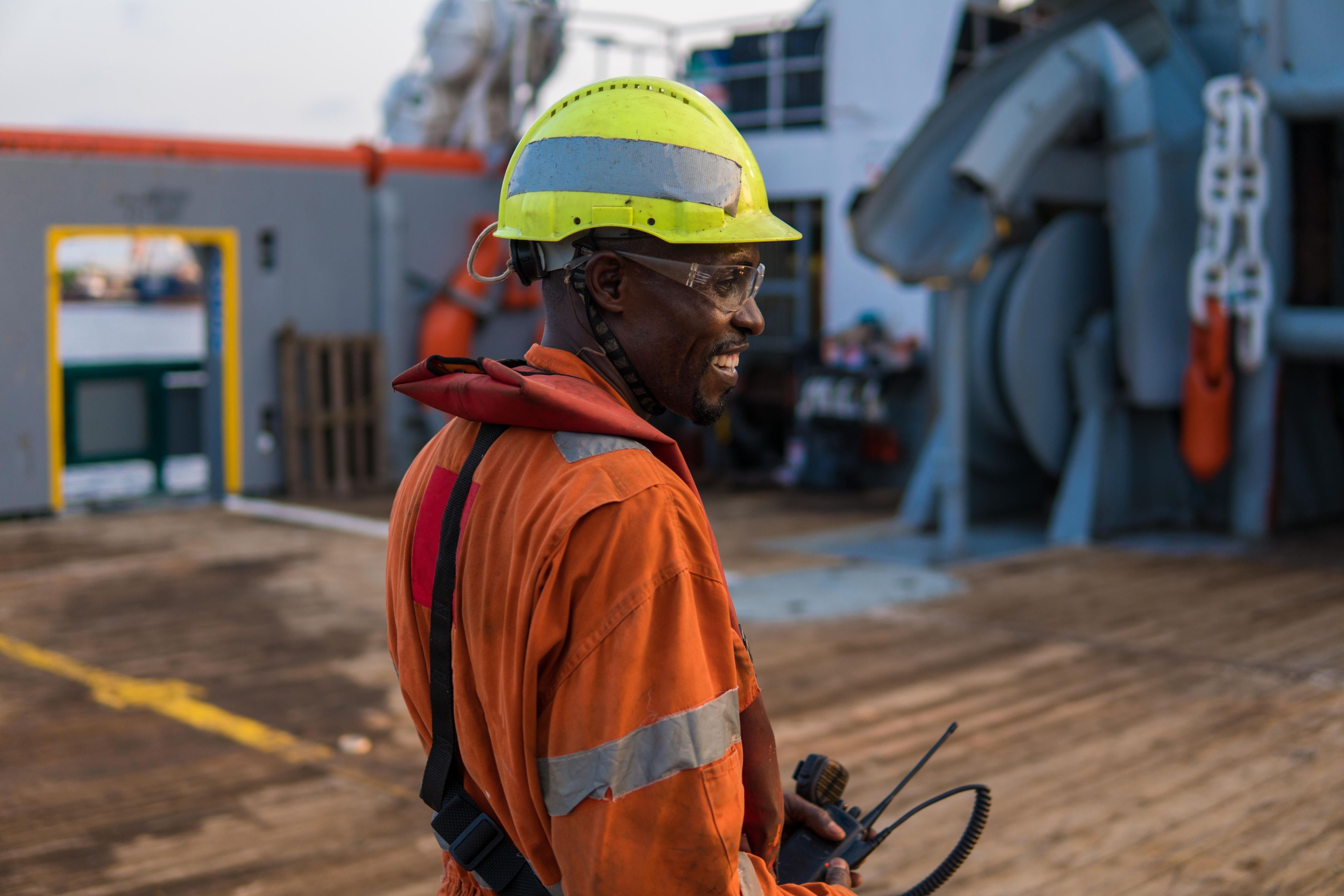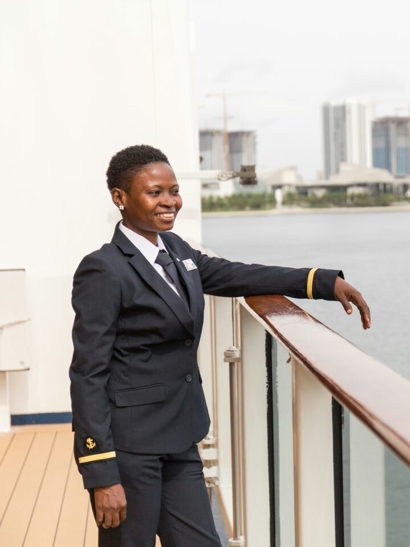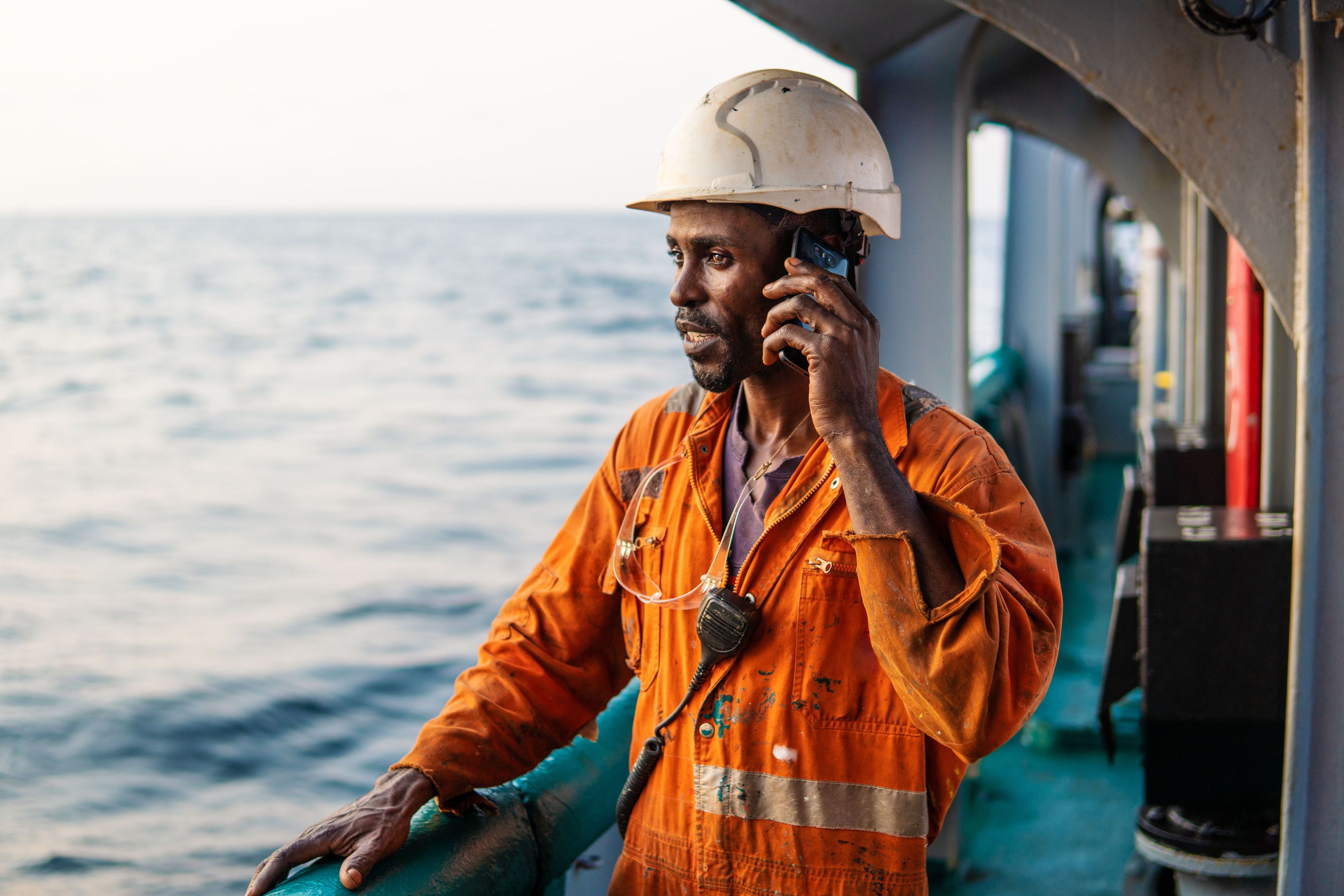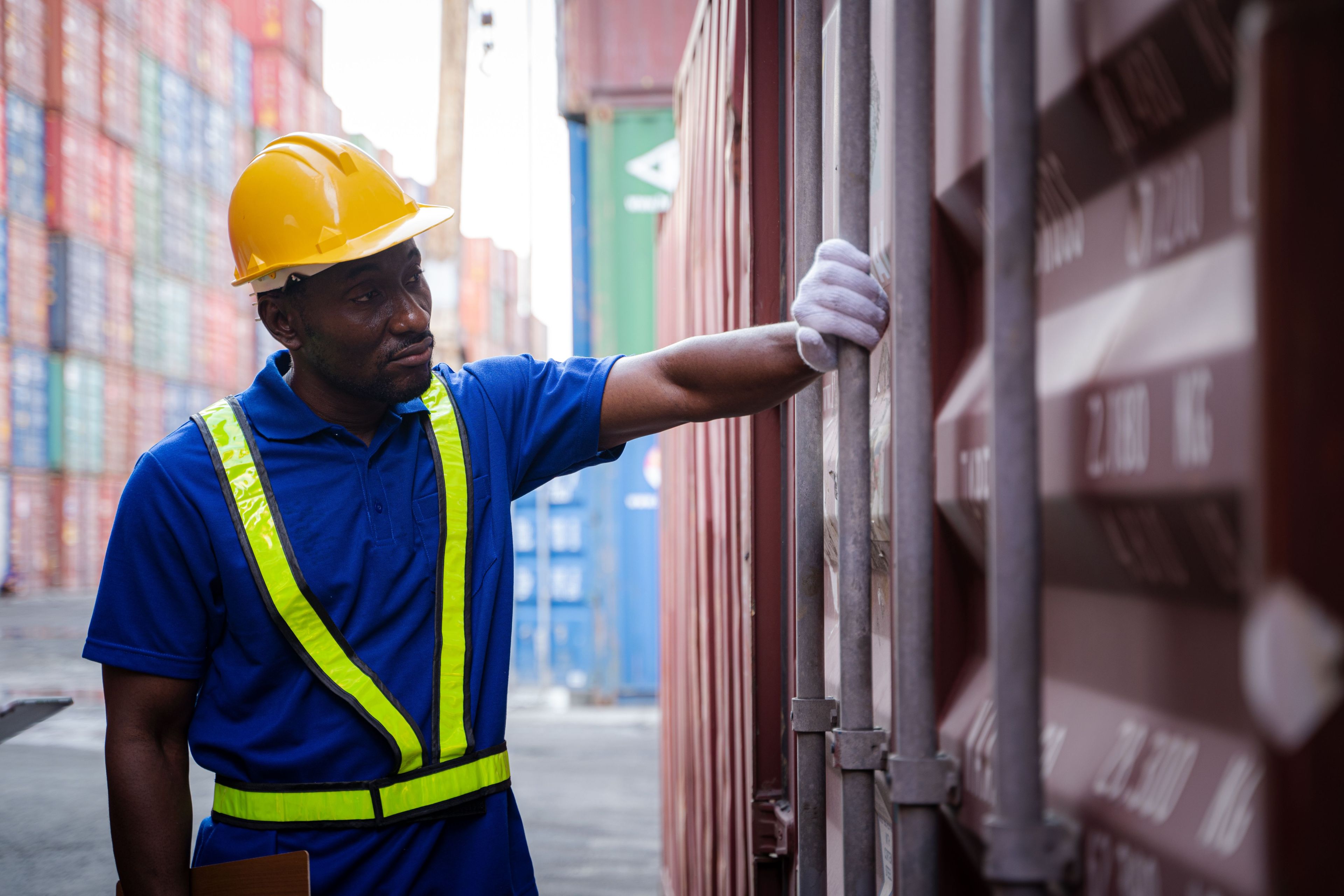July 2023 saw the International Maritime Organization (IMO) adopt a revised strategy to reduce greenhouse gas (GHG) emissions from international shipping, providing the certainty needed to stimulate the uptake of alternative fuels and clean energy technologies, and unlock a new chapter towards maritime decarbonisation.
For nations with a large seafaring workforce, this new phase of ambition brings potential for unparalleled social and economic benefits, but it is important we pay attention to supporting developing countries, in particular small island developing states (SIDS) and least developed countries (LDCs), so that no one is left behind.

Moving towards a low-emission future will require new green jobs and reskilling, and the global maritime industry is no different. At Lloyd’s Register Foundation, we are committed to supporting skills and education initiatives across the world, using our unique position as a global safety charity to identify areas where improved skills for safety are needed most.
People-centred transition
Research commissioned by the Maritime Just Transition Task Force found that up to 800,000 seafarers will require additional training by the mid-2030s to reach the target for net zero emissions for shipping by 2050. Future alternative fuel technologies, such as hydrogen, ammonia, batteries, and biofuels, will mean up-skilling all seafarers, in addition to familiarisation onboard, specific to the ship they are joining.
Primarily funded by Lloyd’s Register Foundation, the Maritime Just Transition Task Force was established during COP26, by the International Chamber of Shipping (ICS), the International Transport Workers’ Federation (ITF), the United Nations Global Compact, the International Labour Organization (ILO) and the International Maritime Organization (IMO).
Formed to ensure that shipping’s response to the climate emergency puts seafarers and communities at the heart of the solution, it coordinates efforts to work with governments, industry, workers, and their representatives to ensure a safe and human-centred approach to achieving green shipping.
“Moving towards a low-emission future will require new green jobs and reskilling, and the global maritime industry is no different. At Lloyd’s Register Foundation, we are committed to supporting skills and education initiatives across the world, using our unique position as a global safety charity to identify areas where improved skills for safety are needed most. Through our network of partners and grant holders, we help provide the necessary training and infrastructure to help keep people safe from harm,” says Senior Programme Manager at Lloyd’s Register Foundation, Olivia Swift.

African initiatives
Seen to be a potential green jobs front-runner, Africa has an opportunity to capitalise on the social and economic benefits of a just transition– in shipping and beyond.
With 1.3 billion people, and this expected to double by 2050, as well as a combined GDP of $3.5 trillion dollars, Africa is one of the world’s biggest growth markets. It is well positioned to be a green seafarer hub explains South African Maritime Safety Authority (SAMSA) Occupational Health & Safety and Maritime Welfare Manager, Sibusiso Rantsoabe. “There is currently unprecedented demand for African seafarers and the urgent need to decarbonize creates further opportunities for our workers, who have already demonstrated their excellence in a global setting.”
“Becoming a supply hub of seafarers in the future is a win-win situation that will not only benefit African countries through the creation of good quality jobs, but the entire world by lowering the environmental impact of human actions. This presents an opportunity for Africa to ensure that we are not left behind but also cements our place as a potential new crewing frontier for shipping.”
African policymakers are now being advised to implement the necessary training infrastructure as quickly as possible to maximise high-quality employment opportunities for workers and facilitate the continent’s green transition.
Several initiatives are already achieving this, including work conducted by The National Seafarer Development Programme (NSDP), run by the South African International Maritime Institute (SAIMI). This national intervention has set up a structured training programme to address the country’s sea-faring skills shortage and the inability of graduates to obtain the necessary sea-time to complete their qualifications. SAIMI and the International Maritime Employers Council (IMEC) have also successfully launched an IMEC South African cadet training programme this year.
Health and safety-first approach
Without adequate training to operate new technology systems and to manage new fuels, poor handling could lead to significant health and safety risks for seafarers, ships, communities, and the environment. By setting up green seafarer training initiatives as early as possible and adopting a ‘health and-safety first’ culture we can minimise risk says ICS Senior Manager Policy and Employment Affairs, Helio Vicente.
Helio says: “Given the mix of low and zero carbon fuels set to power ships in the future, training and upskilling seafarers has never been more urgent. Technology must evolve in step with seafarer skills so that the shift to a greener future is done as safely and efficiently as possible, minimizing risk along the supply chain. African maritime leaders must act now to ensure that their workforces are primed for shipping’s green transition.”
International Transport Workers’ Federation (ITF) Africa Regional Secretary, Mohammed Dauda Safiyanu, further explains: “Transitioning away from fossil fuels requires additional skill sets that must be properly developed, and while this is definitely a challenge, it is also an opportunity for African countries to develop their own highly skilled seafaring workforces.”
“As part of a just transition, these jobs must be decent, which includes meeting the highest health and safety standards. They should also be fairly paid, bringing economic benefits to the region and thereby improving parity between the global north and the global south. The sooner that we begin investing in green skills, the more likely it is that we can crew the low emission vessels of tomorrow.”


Leading the way
By driving a just transition and greening the economy in a way that is as fair and inclusive as possible, we can enhance our ability to manage natural resources sustainably, increase energy efficiency and reduce waste, while also creating valuable work opportunities for our global community of seafarers.
As we look to events such as London International Shipping Week, which offers a critical point for reflection, the shipping industry has a real opportunity to put seafarers both in Africa and beyond at the heart of the conversation. Despite uncertainty, there is a conclusive need to shift to a decarbonised future in a way that also unleashes the green maritime jobs of the future and leaves no one behind.







